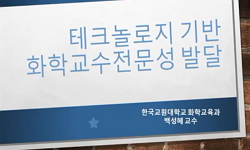본 연구는 국립관세박물관(이하 관세박물관) 교육담당자의 전문성 강화를 위한 PCK(Pedagogical Content Knowledge, 교수 내용 지식)연구로, 박물관 교육 주제별로 다르게 구현되는 교육담당자들의 PCK...
http://chineseinput.net/에서 pinyin(병음)방식으로 중국어를 변환할 수 있습니다.
변환된 중국어를 복사하여 사용하시면 됩니다.
- 中文 을 입력하시려면 zhongwen을 입력하시고 space를누르시면됩니다.
- 北京 을 입력하시려면 beijing을 입력하시고 space를 누르시면 됩니다.
https://www.riss.kr/link?id=A109380007
- 저자
- 발행기관
- 학술지명
- 권호사항
-
발행연도
2024
-
작성언어
-
- 주제어
-
KDC
370
-
자료형태
학술저널
-
수록면
60-76(17쪽)
- 제공처
-
0
상세조회 -
0
다운로드
부가정보
국문 초록 (Abstract)
본 연구는 국립관세박물관(이하 관세박물관) 교육담당자의 전문성 강화를 위한 PCK(Pedagogical Content Knowledge, 교수 내용 지식)연구로, 박물관 교육 주제별로 다르게 구현되는 교육담당자들의 PCK를 관세박물관의 사례를 통해 살펴보았다. 연구문제는 다음과 같다. 첫째, 관세박물관 교육담당자의 PCK는 어떻게 구성되어있는가? 둘째, 경제 관련 내용을 다루는 관세박물관 수업에서 요구되는 PCK는 무엇인가? 본 연구에는 3명의 관세박물관 교육담당자가 참여하였으며, 이들의 수업참관과 심층면담자료를 CoRe(Content Representation, 내용표상)을 활용하여 ‘유형적 분석 방법’으로 분석하였다. 연구결과 관세박물관 수업에서 나타난 PCK는 ‘관세문화 해석하기’, ‘학습자의 배경지식과 학습내용의 연결’, ‘관세문화를 더 깊이 알기’, ‘박물관 활동을 돕는 수업자료 개발’, ‘질문으로 끊임없이 동기유발’, ‘모방하기와 관찰하기로 교수경험 쌓기’, ‘학습자들의 상태 파악’, ‘학습자와의 라포 형성’, ‘학습자의 이해도 파악’, ‘상황지식’으로 드러났다. 본 연구의 결과, 관세박물관 교육담당자들은 CK(Contents Knowledge, 교육 내용 지식)가 미흡한 것으로 나타났으며, 경제 관련 내용을 다루는 박물관인 만큼 관람객의 금융역량을 향상하기 위해 학습자의 오개념과 선개념을 CK와 연결해야 할 필요성을 논의하였다.
다국어 초록 (Multilingual Abstract)
The Pedagogical Content Knowledge(PCK) study aims to enhance the professionalism of educators at the Korea Customs Museum(KCM). It examines the PCK of educators implemented in different museum education topics through the case of the KCM. The r...
The Pedagogical Content Knowledge(PCK) study aims to enhance the professionalism of educators at the Korea Customs Museum(KCM). It examines the PCK of educators implemented in different museum education topics through the case of the KCM. The research questions are as follows: First, how is the PCK of customs museum educators organized? Second, what is the PCK required in customs museum classes dealing with economicrelated content? Three KCM educators participated in this study, and their class observations and in-depth interviews were analyzed using the CoRe (Content Representation) method. The results showed that the educators demonstrated various PCKs in their classes, including interpreting customs culture, connecting learners’ background knowledge with learning contents, Deepening Understanding of Customs Culture, and developing teaching materials to support museum activities. They also showed skills in constantly motivating with questions, gaining teaching experience by imitating and observing, Assessing Learners’ Status, and building rapport with learners. Additionally, they demonstrated the ability to check learners’ understanding and apply contextual knowledge. As a result of this study, we found that the educators at the KCM lacked content knowledge (CK). The study discusses the need to connect learners’ misconceptions and preconceptions with CK in order to improve visitors’ financial competence. The museum’s theme is based on economic-related content and focuses on customs culture and professionalism.
목차 (Table of Contents)
- Ⅰ. 서론
- Ⅱ. 이론적 배경
- Ⅲ. 연구 방법
- Ⅳ. 연구 결과
- Ⅴ. 결론 및 제언
- Ⅰ. 서론
- Ⅱ. 이론적 배경
- Ⅲ. 연구 방법
- Ⅳ. 연구 결과
- Ⅴ. 결론 및 제언
- 참고문헌
동일학술지(권/호) 다른 논문
-
- 한국박물관교육학회
- 한국박물관교육학회
- 2024
-
[특별기고] 포스트휴먼 시대의 스트휴먼 시대의 박물관 교육의 방향
- 한국박물관교육학회
- 박휴용
- 2024
-
[특별기고] 박물관교육을 통한 물관교육을 통한 지역사회 탐구 철박물관 참여공동체 박물관 참여공동체 프로젝트를 중심으로
- 한국박물관교육학회
- 권남희
- 2024
-
사회정서역량 함양을 위한 회정서역량 함양을 위한 사회정서학습(SEL) 미술 회정서학습(SEL) 미술 프로그램 개발: 에르베튈레 색색깔깔 뮤지엄 전시의 미취학 아동 관람자를 대상으로
- 한국박물관교육학회
- 이현경
- 2024




 스콜라
스콜라



